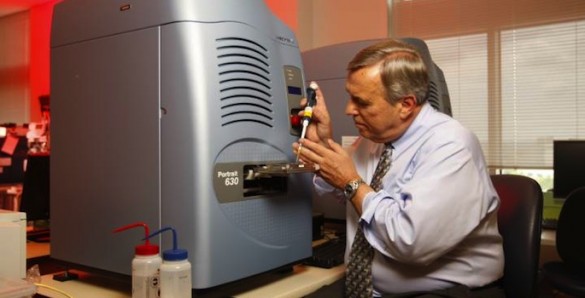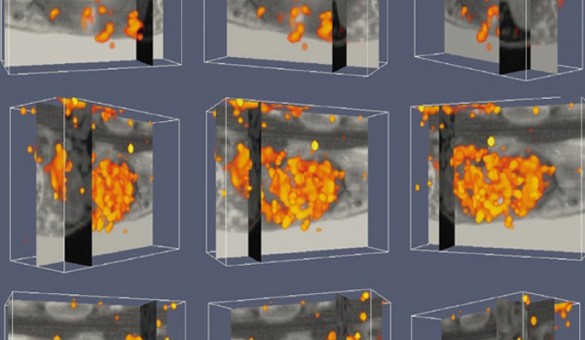Vanderbilt University’s Richard Caprioli, Ph.D., is participating in a national, federally funded collaboration to develop an intravaginal ring capable of delivering antiretroviral drugs to women at risk for HIV infection.

Caprioli, the Stanford Moore Professor of Biochemistry, directs the Mass Spectrometry Research Center at Vanderbilt. He and his colleagues will provide mass spectrometry expertise to the national effort, led by Marc Baum, Ph.D., president and senior faculty of the Oak Crest Institute of Science in Pasadena, California.
Last month the institute received a five-year, $20 million grant from the National Institutes of Health (NIH) to support the research. Vanderbilt will receive $565,000 over that period to measure, through mass spectrometry methods, the distribution of antiretroviral drugs in tissues surrounding the ring.
“The distribution of the compound in the tissue is a critical issue to assess its efficacy in preventing infection,” Caprioli said.
Vanderbilt is a national leader in the development of mass spectrometry methods, including matrix-assisted laser desorption ionization imaging mass spectrometry (MALDI IMS), which Caprioli said was uniquely suited to the research.
The collaboration also includes the U.S. Centers for Disease Control and Prevention, University of Texas Medical Branch in Galveston, Johns Hopkins University, University of Colorado, Boulder, Scripps Research Institute in La Jolla, California, University of California, Los Angeles, and Auritec Pharmaceuticals in Santa Monica, California.















